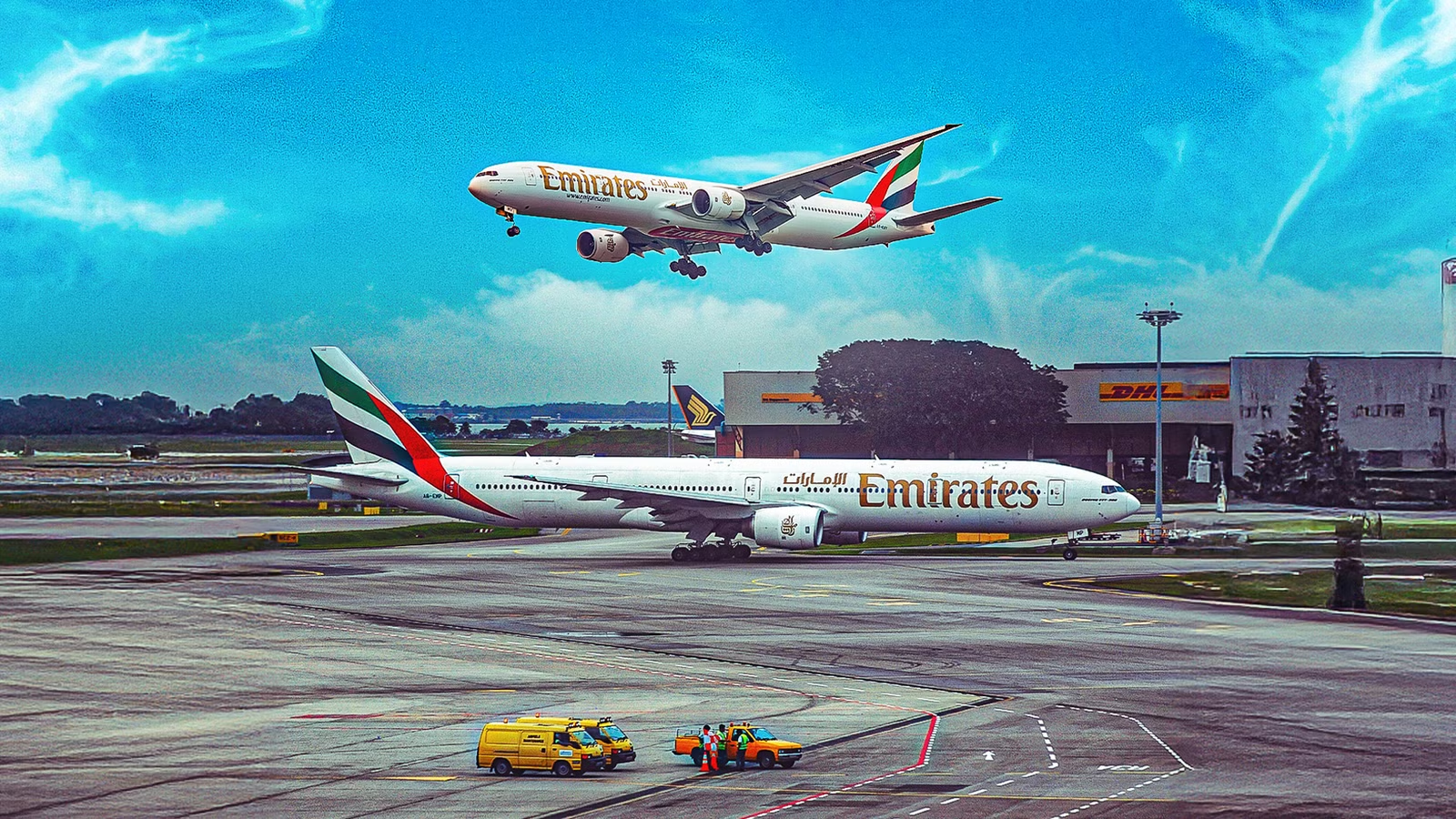Emirates Cuts All Flights To Tel Aviv

In the past couple of years, several airlines have paused or withdrawn routes to Israel as geopolitical tensions have persisted. As soon as the conflict started in 2023, many carriers suspended their services, and the impact has been felt most clearly in the number of flights bound for the country. According to an aviation analytics provider, Cirium, airlines have scheduled 10.8% fewer flights to Israel compared to 2023.
Major operators such as American Airlines, Turkish Airlines, Virgin Atlantic, Korean Air, and Cathay Pacific have not resumed their Israel flights since suspending them. Emirates is also among the carriers that halted service to Tel Aviv in 2023. The airline had been scheduled to restart its Dubai–Tel Aviv route in 2026, but the latest schedule shows that all flights to the city have now been removed.
Emirates Had Planned A 2026 Return Before Removing All Tel Aviv Flights
Credit: Shutterstock
Emirates launched its Tel Aviv service in June 2022, marking its first entry into the Israeli market. The route was operated with a Boeing 777-300ER configured with eight first-class suites, 42 lie-flat business-class seats, and 304 economy seats. At the time of the launch, the airline said it had seen strong demand from travelers in Israel. The service offered direct access to Dubai and onward connections to destinations in the airline’s network, such as Australia, the Philippines, the Maldives, Sri Lanka, Thailand, and Vietnam.
In fact, according to the Dubai Department of Economy & Tourism, more than 300,000 Israelis visited the UAE in the two years following the pandemic, and demand was expected to grow as restrictions eased. Indeed, the demand was reflected in how the airline expanded its schedule. Emirates began with one daily flight, increased to two daily flights later in 2022, and eventually reached three daily flights in 2023 before the route was suspended.
As noted, the carrier had planned to resume the route in April 2026 with a Boeing 777-200LR. Until last week, the Cirium schedule showed one daily departure using the type, configured with 38 business-class seats and 264 economy seats. This week, however, all Tel Aviv flights have been removed.
Emirates Exits, But Flydubai Continues With Up To Ten Daily Flights
Credit: Shutterstock
While Emirates has withdrawn, flydubai, its codeshare partner, continues to operate an extensive service to Tel Aviv. The carrier launched the route in 2020 with two daily flights and has steadily expanded as demand grew following the normalization of diplomatic ties between the UAE and Israel. Indeed, the route has become one of flydubai’s busiest since its launch. The Dubai-based carrier initially served the route with two daily flights, then expanded to four, later to five and six, and eventually up to eight daily by late 2023.
According to Cirium data, it is currently operating ten daily flights, the highest frequency since the route launched. Until August, the schedule hovered at eight daily services, which increased to between eight and ten in late summer, and consistently reached ten daily services since September. After the winter season ends, the airline plans to return to eight daily flights from March next year. flydubai deploys a mix of Boeing 737-800s, 737 MAX 8s, and 737 MAX 9s on the route.
Cirium schedules indicate that from April 2026, the airline will transition to operating only the 737-800 and 737 MAX 8 on Tel Aviv services. Notably, this year, it has scheduled 33.7% more flights compared to 2024, and over 50% more than in 2023. This growth has been driven by strong point-to-point demand as well as connections over Dubai.
Related
flydubai’s Network Analyzed: 119 Destinations & 7 Hour MAX Flights
Discover the surprising overlap between flydubai and Emirates’ routes
Despite Emirates’ Withdrawal, Multiple Carriers Still Link Tel Aviv With The UAE
Credit: Shutterstock
Besides, travelers still have multiple options for traveling to the UAE. For instance, Etihad Airways operates four daily flights from Abu Dhabi to Tel Aviv and will increase this to five daily departures next month. Additionally, several Israeli carriers, including El Al, Arkia, and Israir, also continue to serve the market. Indeed, the broader geopolitical situation has had a clear impact on Israel’s aviation sector. This year, multiple airspace closures and further route suspensions contributed to an 11.8% decline in flights compared to 2023.
Several carriers that halted service last year have not returned. Turkish Airlines is among the most significant. Earlier this year, it relinquished its slots at Ben Gurion Airport. The airline had historically been one of the airport’s largest operators, serving Tel Aviv from Istanbul, Antalya, and Sabiha Gökçen. Before the pandemic, it ranked fourth at the airport with a 4.87% market share and, prior to the conflict, operated more than ten daily flights from Istanbul, sometimes reaching sixteen at peak times.
Tel Aviv to the UAE scheduled services (From November till October 2026)
Destination
Airlines
Frequency
Dubai
flydubai
Currently, up to ten daily;
Up to eight daily after the northern winter season
El Al
Currently, up to 11 weekly;
Reducing to five weekly from April 2026
Arkia
Winter seasonal; up to two daily
The last scheduled flight is on March 28, 2026
Israir
Currently, eight weekly flights;
Ending route from May 4, 2026
Abu Dhabi
Etihad Airways
Currently, four daily;
Increasing to five daily from December 2025
In contrast, American Airlines plans to return. The carrier, which suspended its Tel Aviv service when the conflict began, is set to restart its New York–Tel Aviv route in March 2026. It is also evaluating a potential nonstop service from Los Angeles, following discussions between airline executives and Israel’s Minister of Transport during the recent visit to the United States.





